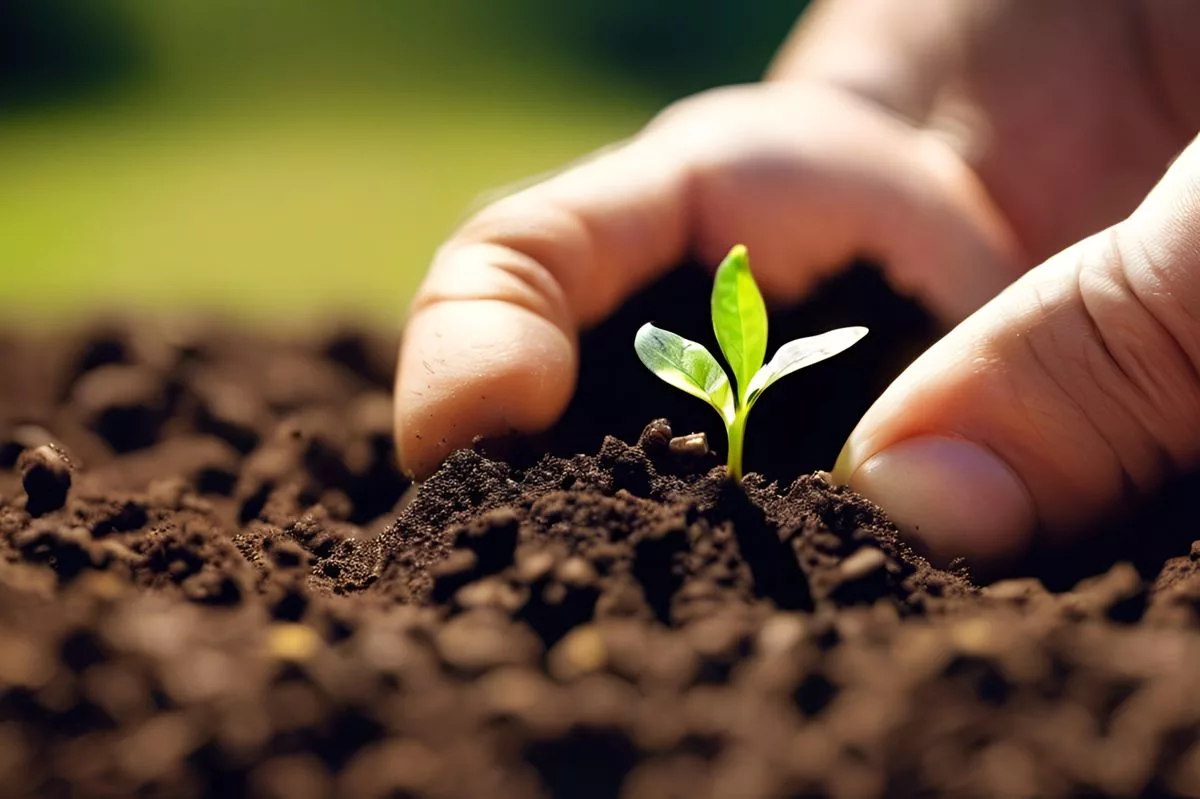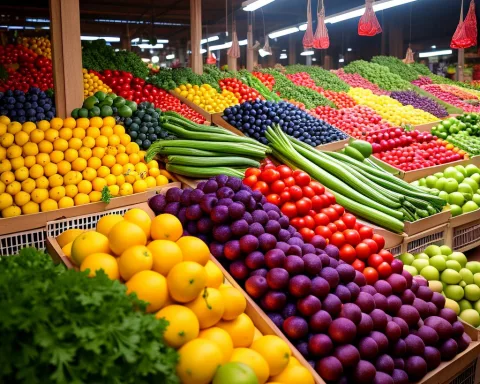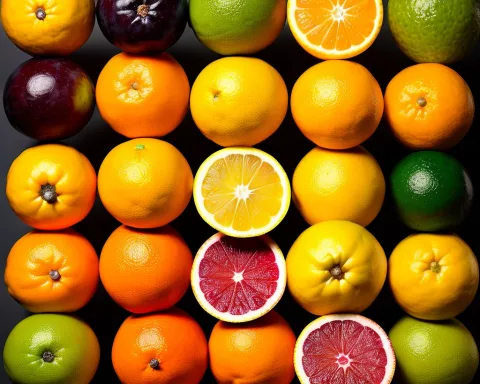Seed 2 Harvest is an innovative program in Cape Flats, South Africa, that aims to tackle local hunger problems by enabling residents to plant and grow their own food gardens, thus promoting self-sufficiency. The program provides households with comprehensive home starter kits containing everything they require to start their journey towards self-sustainability, provided they meet strict eligibility requirements. The ultimate goal is to generate a surplus of organically grown vegetables, significantly alleviating food insecurity in the community. This initiative is a true testament to the power of community resilience and self-empowerment.
What is the Seed 2 Harvest Initiative?
Seed 2 Harvest is a program initiated by Joanie Fredericks and Shaun Cairns to tackle local hunger problems in Cape Flats, South Africa. The program aims to enable residents to plant and grow their own food gardens, thus promoting self-sufficiency. The innovative approach involves introducing home starter kits containing everything households require to start their journey towards self-sustainability, provided they meet strict eligibility requirements. The end objective is to generate a surplus of organically grown vegetables, significantly alleviating food insecurity in the community.
In the pulsating heart of Cape Town’s Cape Flats, a revolutionary concept is quickly gaining traction. Called Seed 2 Harvest, the program was initiated by Joanie Fredericks and Shaun Cairns in 2020. The pair are dedicating their efforts to tackle local hunger problems, but they are doing it differently. Instead of using the orthodox methods of food distribution or temporary aid, they have a grander vision – to enable residents to plant and grow their own food gardens, thus promoting self-sufficiency.
Tackling Hunger in Cape Flats
While Cape Town is recognized for its rich history and culture and is a favorite destination for adventurous tourists, the city has its challenges. Amidst the city’s vibrancy, a community struggles with food insecurity. The Cape Flats, a significant urban area, has been profoundly affected during the COVID-19 pandemic. In response, Fredericks and Cairns teamed up with the Combating Household Hunger 2024 program to devise a solution providing more than just a temporary reprieve.
Throughout late 2023, discussions focused on reducing the reliance on food lines and restoring dignity within households. The objective was to enable community members to achieve independence through growing their own food. While this idea may seem simple, it has the potential to cause a seismic shift in the community.
The Seed 2 Harvest Approach
Seed 2 Harvest’s innovative approach involved the introduction of home starter kits. These kits, intended to be circulated every three months for the initial four growing cycles, are comprehensive. They contain six types of organic seeds, organic fertilizers, pesticides, bio-stimulants, fungicides, a measuring cup, a growing guide, a pressure sprayer, and essential gardening tools. The objective is to provide each household with everything they require to start their journey towards self-sustainability.
However, strict regulations govern the eligibility for these kits. Households earning less than R4 500 per month must show previous growing experience or a willingness to learn. Other prerequisites include access to a minimum space of 1m x 2m, a water source, and a commitment to attend tutorial sessions. The application process is detailed and includes a briefing workshop, a site visit, and verification of personal information.
Conservation and Community Involvement
Addressing the critical issue of water security, Seed 2 Harvest has come up with a remarkable solution. By integrating Biochar, a water-holding charcoal, the project significantly increases the soil’s water retention capacity, thus conserving up to 80% of water. This not only addresses ecological concerns but also ensures the sustainability of the home gardens.
The Seed 2 Harvest project emphasizes community involvement. They have planned monthly community brainstorming sessions to maintain enthusiasm, motivate participants, and build a supportive network. Shaun Cairns outlined the psychological dimension of their goal, namely boosting morale and offering hope in dire situations.
Yet, the extent of the impact that Seed 2 Harvest aims to have is vast. The project aims to reach at least half of the Tafelsig community. Despite a rise in applications, Cairns stressed the urgency of meeting the overwhelming demand and appealed for more donors to assist more households.
The End Goal
Seed 2 Harvest’s ultimate objective is to generate a surplus of organically grown vegetables, enabling households to support themselves and effectively combat hunger. They firmly believe that these organic gardens can significantly alleviate food insecurity in the community.
In a city as diverse and vibrant as Cape Town, the Seed 2 Harvest initiative’s innovative approach to tackling hunger is a true testament to the power of community resilience and self-empowerment. Among the numerous activities in this vibrant city, supporting this cause is indeed a worthwhile and significant endeavor.
1. What is the Seed 2 Harvest Initiative?
Seed 2 Harvest is a program initiated by Joanie Fredericks and Shaun Cairns to tackle local hunger problems in Cape Flats, South Africa. The program aims to enable residents to plant and grow their own food gardens, thus promoting self-sufficiency.
2. How does Seed 2 Harvest work?
The Seed 2 Harvest program provides households with comprehensive home starter kits containing everything they require to start their journey towards self-sustainability, provided they meet strict eligibility requirements. The end objective is to generate a surplus of organically grown vegetables, significantly alleviating food insecurity in the community.
3. What are the eligibility requirements for the home starter kits?
Households earning less than R4 500 per month must show previous growing experience or a willingness to learn. Other prerequisites include access to a minimum space of 1m x 2m, a water source, and a commitment to attend tutorial sessions. The application process is detailed and includes a briefing workshop, a site visit, and verification of personal information.
4. How is water conservation addressed in the Seed 2 Harvest program?
By integrating Biochar, a water-holding charcoal, the project significantly increases the soil’s water retention capacity, thus conserving up to 80% of water. This not only addresses ecological concerns but also ensures the sustainability of the home gardens.
5. What is the role of community involvement in the Seed 2 Harvest project?
The Seed 2 Harvest project emphasizes community involvement. They have planned monthly community brainstorming sessions to maintain enthusiasm, motivate participants, and build a supportive network. Shaun Cairns outlined the psychological dimension of their goal, namely boosting morale and offering hope in dire situations.
6. What is the ultimate goal of the Seed 2 Harvest initiative?
The Seed 2 Harvest program’s ultimate objective is to generate a surplus of organically grown vegetables, enabling households to support themselves and effectively combat hunger. They firmly believe that these organic gardens can significantly alleviate food insecurity in the community.












